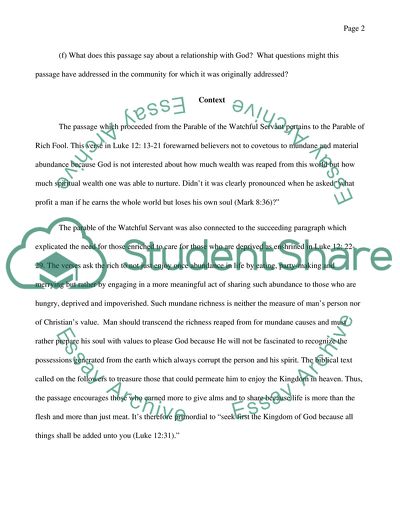Cite this document
(An Introduction to Biblical Criticisms and Their Applications Literature review Example | Topics and Well Written Essays - 3000 words - 1, n.d.)
An Introduction to Biblical Criticisms and Their Applications Literature review Example | Topics and Well Written Essays - 3000 words - 1. https://studentshare.org/religion-and-theology/1779282-the-watchful-servants
An Introduction to Biblical Criticisms and Their Applications Literature review Example | Topics and Well Written Essays - 3000 words - 1. https://studentshare.org/religion-and-theology/1779282-the-watchful-servants
(An Introduction to Biblical Criticisms and Their Applications Literature Review Example | Topics and Well Written Essays - 3000 Words - 1)
An Introduction to Biblical Criticisms and Their Applications Literature Review Example | Topics and Well Written Essays - 3000 Words - 1. https://studentshare.org/religion-and-theology/1779282-the-watchful-servants.
An Introduction to Biblical Criticisms and Their Applications Literature Review Example | Topics and Well Written Essays - 3000 Words - 1. https://studentshare.org/religion-and-theology/1779282-the-watchful-servants.
“An Introduction to Biblical Criticisms and Their Applications Literature Review Example | Topics and Well Written Essays - 3000 Words - 1”. https://studentshare.org/religion-and-theology/1779282-the-watchful-servants.


